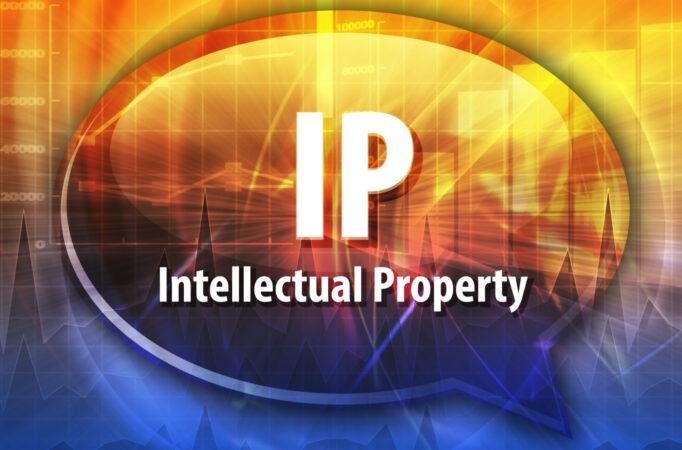Intellectual Property Litigation, Protection, Prosecution and AI Legal Matters
Butler County, Pennsylvania Court Filings to Require Generative AI Affidavit on October 21, 2024
Starting on Monday, October 21, 2024, the Butler County, Pennsylvania Court of Common Pleas will require an Affidavit about the use of Generative AI to be attached to court filings. This marks a new development in courts’ efforts to ensure that materials filed in court are the products of human work and not un-checked machine outputs. Lawyers practicing in Butler County should be aware of this Order and other courts’ filing requirements related to the use of generative artificial intelligence.
This new filing requirement comes from an Administrative Order entered by Butler County. Pennsylvania President Judge S. Michael Yeager on September 10, 2024. That Administrative Order states that it is effective 30 days after publication in the Pennsylvania Bulletin. That publication occurred on September 21, 2024. That marks Monday, October 21, 2024 as the first day of this new filing requirement.
This new generative artificial intelligence Administrative Order is broadly applicable. It applies to “. . . any complaint, answer, motion, brief, or other pleading and/or filing submitted to the court” that is filed by all “. . . [a]ttorneys and/or pro se litigants. . .” If an individual and court filing falls within this broad scope, an “Affidavit Regarding Generative Artificial Intelligence” must be appended to the filing. In that Affidavit, the document filer “. . . shall disclose any use of generative artificial intelligence (“AI”). . .” in the preparation of the filing. In the Affidavit, the filer must attest that “. . . generative AI has not been utilized in any way in the preparation of the filing, or, if generative AI has been used in the preparation of the filing, that each and every citation to the law or the record in the filing has been verified by a human being as authentic and correct.”
A form Affidavit Regarding Generative Artificial Intelligence was appended to the Administrative Order in question. That Affidavit does not include a block for notary acknowledgment, so it appears that the signature of counsel or a pro se party on the Affidavit is sufficient to satisfy the filing requirement.
To be clear, this new filing requirement does not prohibit the use of generative AI in the preparation of court submissions. Instead, it requires court filers to affirmatively represent that they have checked and stand behind the contents of of their submissions. This generative AI acknowledgment, rather than prohibition, is realistic. It recognizes that technological advancements like generative AI may be used in the preparation of court documents, and does not stand in the way of that reality. The generative AI Affidavit requirement instead imposes an additional layer of an enforceable reminder that filers be aware of, and responsible for, the work product submitted to the Court.
While the scope and requirements of the Affidavit Regarding Generative Artificial Intelligence appear reasonable, there are two broader issues that are highlighted by this new filing requirement. First is the question about the scope of disclosure.
At this point, most counsel are likely not going to (and should not) use the general internet and applications like ChatGPT as the sole source of legal research. The existence and validity of cases or authorities need to be confirmed through other resources, like Westlaw, Lexis and court websites. But even traditional legal resource outlets like Westlaw and Lexis use generative AI in searches. So, while the likelihood of hallucinated cases is lower when using Westlaw or Lexis versus than other sources, that does not mean that those resources’ summarizations or descriptions of those authorities is accurate or contextually appropriate.
Given rapid behind-the-scenes developments in search algorithms, it is possible, indeed probable, that generative AI is employed in searches to some degree, even if the user is not aware. Butler County’s new Affidavit Regarding Generative Artificial Intelligence wisely does not force filers to get into the weeds regarding the technological processes behind their search. The Affidavit Regarding Generative Artificial Intelligence treats all research and drafting the same, whether generative AI may have been used or not: counsel must personally check and verify their submissions.
The second big-picture raised by Butler County’s new Administrative Order is the potentially piecemeal requirements for generative AI certifications across courts. The preparation and filing of documents is obviously not something specific to a single county. Given the nature of the subject matter - the use of generative AI as a research and drafting tool for all court filings - a uniform statewide form rule or certification may be easier for courts and attorneys to follow.
While these big-picture considerations are worth evaluation and further discussions the reality is that come October 21, 2024, filers will need to attach the Affidavit Regarding Generative Artificial Intelligence to filings in the Butler County, Pennsylvania Court of Common Pleas. Lawyers should be aware of this, and examine local court rules in other venues to determine whether there may be a similar filing requirement elsewhere.
If you have questions about this post, contact it's author, Brendan A. O’Donnell at (412) 288-2226
About Us
The IP, Technology, AI and Trade Secret attorneys at Houston Harbaugh, P.C., have extensive courtroom, jury and non-jury trial and tribunal experience representing industrial, financial, individual and business clients in IP and AI counseling, infringement litigation, trade secret protection and misappropriation litigation, and the overall creation and protection of intellectual property rights in an AI driven world. Our team combines extensive litigation experience with comprehensive knowledge of rapidly evolving AI and technology landscapes. From our law office in Pittsburgh, we serve a diverse portfolio of clients across Pennsylvania and other jurisdictions, providing strategic counsel in patent disputes, trade secret protection, IP portfolio development, and AI-related intellectual property matters. Our Trade Secret Law Practice is federally trademark identified by DTSALaw®. We practice before the United States Patent and Trademark Office (USPTO) and we and our partners and affiliates apply for and prosecute applications for patents, trademarks and copyrights. Whether navigating AI implementation challenges, defending against infringement claims, or developing comprehensive IP strategies for emerging technologies, our team provides sophisticated representation for industrial leaders, technology companies, financial institutions, and innovative businesses in Pennsylvania and beyond.
IP section chair Henry Sneath, in addition to his litigation practice, is currently serving as a Special Master in the United States District Court for the Western District of Pennsylvania in complex patent litigation by appointment of the court. Pittsburgh, Pennsylvania Intellectual Property Lawyers | Infringement Litigation | Attorneys | Patent, Trademark, Copyright | DTSALaw® | AI | Artificial Intelligence

Henry M. Sneath - Practice Chair
Co-Chair of Houston Harbaugh’s Litigation Practice, and Chair of its Intellectual Property Practice, Henry Sneath is a trial attorney, mediator, arbitrator and Federal Court Approved Mediation Neutral and Special Master with extensive federal and state court trial experience in cases involving commercial disputes, breach of contract litigation, intellectual property matters, patent, trademark and copyright infringement, trade secret misappropriation, DTSA claims, cyber security and data breach prevention, mitigation and litigation, probate trusts and estates litigation, construction claims, eminent domain, professional negligence lawsuits, pharmaceutical, products liability and catastrophic injury litigation, insurance coverage, and insurance bad faith claims. He is currently serving as both lead trial counsel and local co-trial counsel in complex business and breach of contract litigation, patent infringement, trademark infringement and Lanham Act claims, products liability and catastrophic injury matters, and in matters related to cybersecurity, probate trusts and estates, employment, trade secrets, federal Defend Trade Secrets Act (DTSA) and restrictive covenant claims. Pittsburgh, Pennsylvania Business Litigation and Intellectual Property Lawyer. DTSALaw® PSMNLaw® PSMN®

